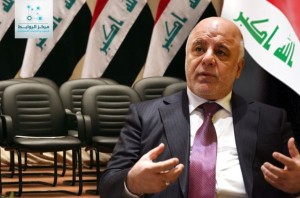Paul Bremer , the governor of the Coalition Provisional Authority in Iraq after the US occupation to it , is the first one who suggested the idea of a technocrat government in it , and due to oppose this idea with the interests of the new Iraqi political class , it has been replaced by the idea of the Iraqi governing Council which was formed on July 12, 2003 . Following the enactment of the Iraqi constitution on October 15 2005, Iraq has adopted a parliamentary system of rule based on political and sectarian quotas, and a Prime Minister has actual power in managing the country’s affairs . After more than ten years since the adoption of this kind of “parliamentary political system,” Iraq is suffering many of the crises at all levels which led to the overthrow of the government of former Prime Minister Nuri al-Maliki and brought Haider Abadi as prime minister on 12th of August 2014 as his successor , where he could not resolve these crises in accordance with the applicable political system in Iraq.
To overcome the crises of the Iraqi political system , from the viewpoint of Iraqi Prime Minister Haider al-Abadi , it is obligatory to change the basis on which the Iraqi government was formed and rely on another method. According to private information of Iraqi Altaghier channel , Haider al-Abadi told the Presidency of Republic that he intends to bring about a comprehensive change in the composition of his government and restructure it on a technocrat basis, so as the number of ministers in the government which is intended to be formed, do not exceed than fifteen ministers. And the formation of a government of technocrats requires from Haider al-Abadi to obtain authorization from the Iraqi Council of Representatives.
Because the idea of forming a government of technocrats comes from outside the Iraqi political system box, which was established after the year 2003, it must have supporters and opponents, Proponents of this idea and on the Iraqi internal level , some factions are within the law state coalition, and at the regional level is the Iranian regime , where the Qassem Soleimani told Haider Alabadi the support of his regime to his idea and stay in power, and at the international level, the United States welcomed the formation of this government , through its ambassador in Iraq, E. Stewart. Jones, who met blocs and some Iraqi officials and told them about the US position of Haider al-Abadi, and the international position towards him is withdrawn to some of the ambassadors of Western countries in Iraq, which supports the US position on the formation of a government of technocrats.
Opponents of the idea of Haider al-Abadi are from Iraqi political forces like the Iraqi Supreme Islamic Council headed by Ammar al-Hakim, and the Sadrist movement led by Muqtada al-Sadr, the Union forces led by Salim al-Jubouri, who is currently the head of the Iraqi Council of Representatives, the National coalition of Dr. Iyad Alawi. It is worth to be noted here that the opposition is not rejecting the idea itself, but to apply the mechanism, where they refuse Iraqi Prime Minister Haider al-Abadi to do alone in the selection of members of the technocratic government, demanding instead that either the participation of all Iraqi political forces to form the government, or the formation of a sovereign Council to draw a strategic policies in the country .
There are those who believe that the House of Representatives is concerned in the formation of a government of technocrats rather than Prime Minister Haider al-Abadi, and there are those who went even further as they condition that the government of technocrats to be headed without Haider Abadi , because this kind of governments are required its prime minister and ministers to be from independent professionals and politicians, and so this government will loss any credibility if its head is Haider al-Abadi, who belongs to the Dawa Party.
Iraqi Prime Minister , with this new trend in the formation of the Iraqi government , he will submit to parliament a set of chosen names to form a new government through which he can achieve accomplishments on the internal and external level, and otherwise – from the standpoint of Prime Minister – crises courses will continue at the scene of the entire Iraq . The question to be suggested in this context, noting that Iraq is living tough conditions at all levels, will Iraqi political forces be able to reach , at the end of the matter, to creative agreement to resolve their differences for a better Iraq, or the stumble and tear is the prominent heading of Iraq post 2003?
Rawabet Center for Research and Strategic Studies

